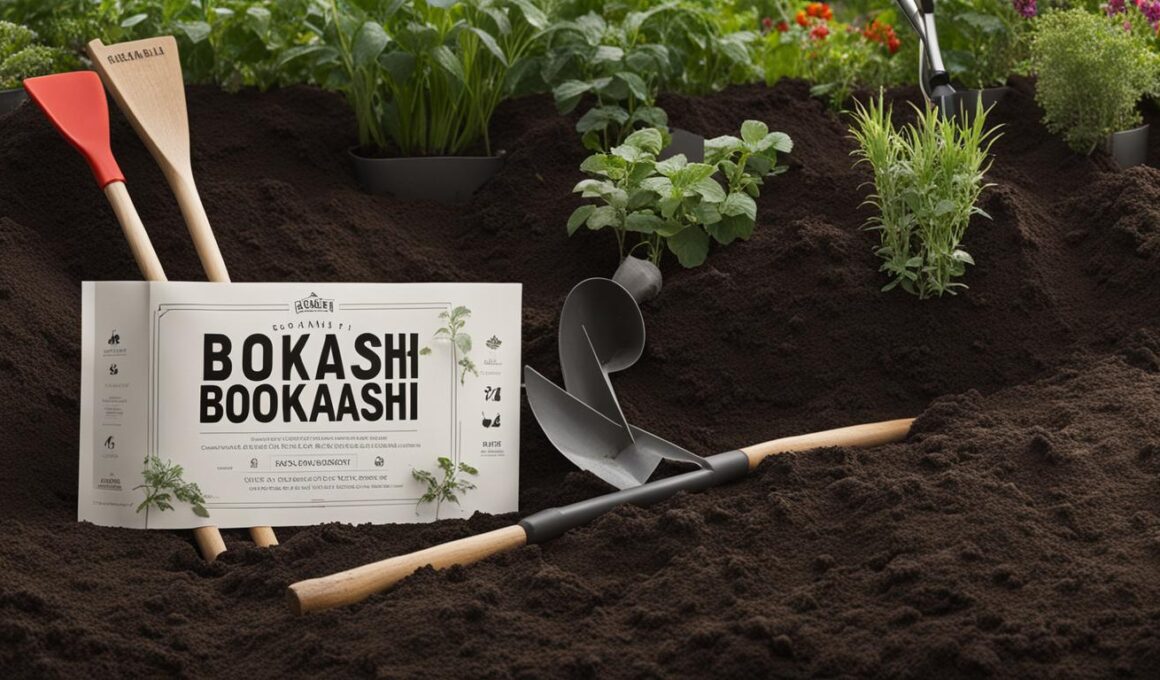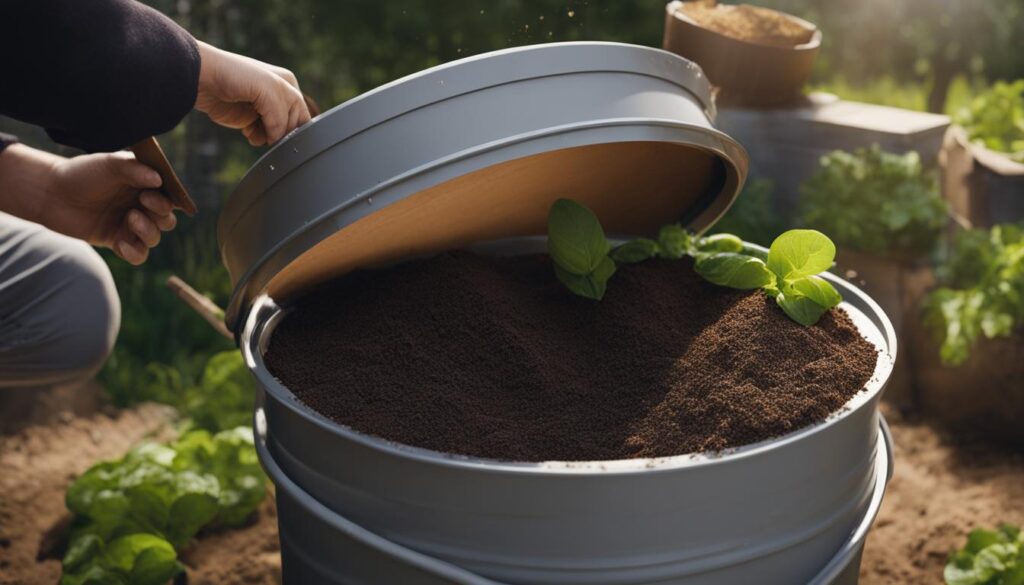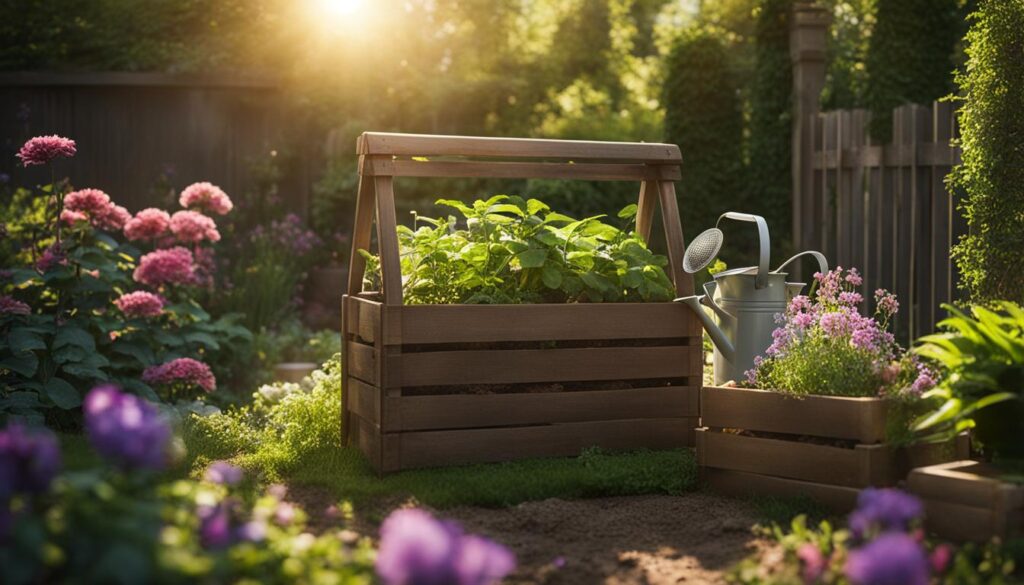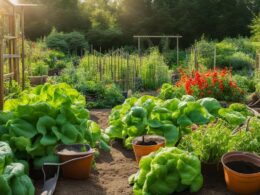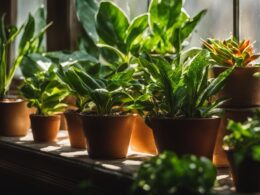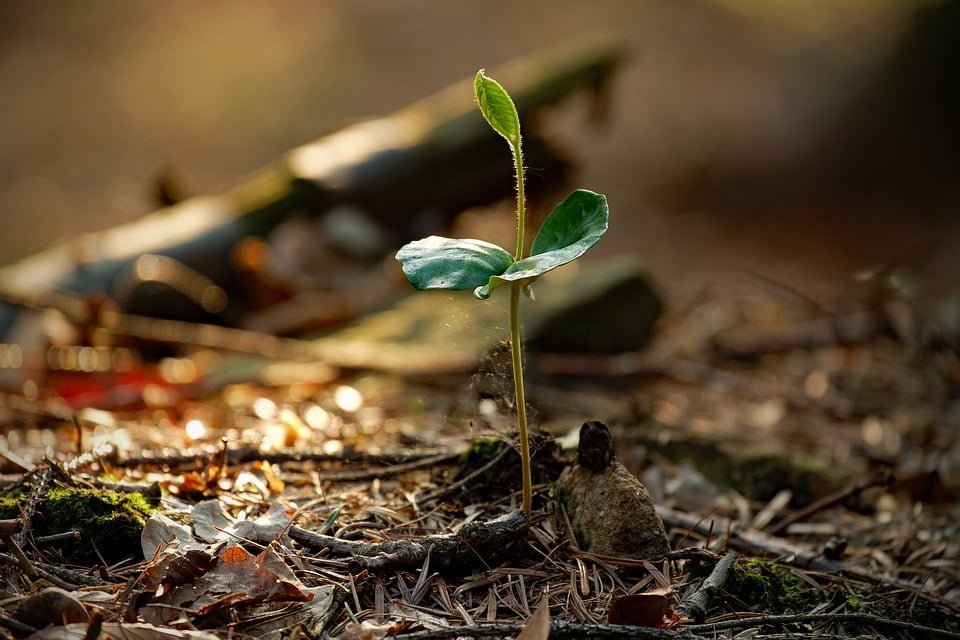Welcome to your ultimate guide on soil enrichment methods – Bokashi composting and traditional composting. As a gardener, you understand the importance of enriching your soil to unlock your garden’s full potential. In this article, we will explore the differences between Bokashi and compost, highlighting their unique benefits and discussing how they contribute to sustainable gardening practices.
Post Summary
- Bokashi composting and traditional composting are effective methods for enriching garden soil.
- Bokashi composting utilizes anaerobic fermentation and effective microorganisms, while traditional composting relies on aerobic decomposition.
- Bokashi compost can handle a wider range of kitchen waste, including meat and dairy products, while traditional compost is limited to plant-based materials.
- Bokashi compost and tea provide essential nutrients and beneficial microbes for plants, improving soil structure and promoting healthy growth.
- Bokashi composting can be adapted to different garden spaces, allowing everyone to participate in sustainable gardening practices.
The Bokashi Composting Method
Bokashi composting is a unique and effective method for enriching your soil. This two-stage process harnesses the power of fermentation and effective microorganisms to transform kitchen waste into nutrient-rich compost. Unlike traditional composting methods, which rely on aerobic decomposition, bokashi composting takes place in an anaerobic environment, allowing for a wider range of food scraps to be composted, including meat and dairy products. This makes it an ideal solution for those who want to divert a larger variety of organic waste from going to landfill.
The fermentation process in bokashi composting occurs within a sealed bin. Food scraps are layered with bokashi bran, a mix of bran infused with effective microorganisms. These microorganisms initiate the fermentation process, breaking down the waste and reducing its volume. This process also creates a rich and diverse community of beneficial microbes in the compost, which further enhances its nutrient content.
Once the food scraps have gone through fermentation, the resulting compost can be used in various ways. It can be directly incorporated into garden soil, providing an instant boost of nutrients and improving its overall health. Alternatively, you can add the fermented compost to traditional compost piles, enriching them with beneficial microorganisms. This helps accelerate the decomposition process and results in high-quality compost that can be used throughout your garden.
The bokashi composting method offers several advantages. It allows for the composting of a wider variety of food scraps, including those that are typically considered unsuitable for traditional composting methods. The fermentation process also helps break down waste more quickly and efficiently, reducing odors and minimizing the risk of attracting pests. Additionally, bokashi composting contributes to the overall sustainability of your garden by diverting organic waste from landfills and reducing the need for synthetic fertilizers.
Using Bokashi Compost and Tea in the Garden
Bokashi compost and bokashi tea are valuable resources that can greatly benefit your garden. Bokashi compost, also known as pre-compost, is a nutrient-rich mixture that can be incorporated into your garden soil in various ways. By adding bokashi compost to your garden, you are introducing beneficial microorganisms and valuable nutrients that nourish your plants and improve soil health.
Bokashi tea, on the other hand, is the liquid byproduct of the bokashi composting process. It is rich in beneficial microorganisms and can be diluted and used as a liquid fertilizer for your plants. When applied to the soil, bokashi tea helps promote healthy growth and vitality in your plants, providing them with essential nutrients and enhancing their overall well-being. It is a natural and sustainable way to nourish your garden.
When using bokashi compost in your garden, there are several methods you can follow. You can dig compost trenches and bury the bokashi compost directly into the soil. This allows the nutrients to gradually release into the soil, benefiting the plants over time. Another option is to add the bokashi compost to traditional compost piles, where it will further break down and enrich the entire composting system. Whichever method you choose, incorporating bokashi compost into your garden will help improve soil structure, water-holding capacity, and provide essential nourishment for your plants.
In conclusion, bokashi compost and tea offer a sustainable and effective way to enhance your garden soil and provide important nutrients for your plants. By utilizing these resources, you can promote healthy growth, improve soil health, and maximize the potential of your garden. Experiment with different application methods and see the incredible benefits that bokashi compost and tea can bring to your garden.
Implementing Bokashi Composting in Different Garden Spaces
Bokashi composting is a versatile method that can be adapted to suit different garden spaces, whether you have a small urban garden or a larger outdoor area. Here are some practical ways to implement bokashi composting in various garden setups:
Small Gardens
If you have a limited space, bokashi composting can still be easily incorporated into your gardening routine. One option is to use small bokashi bins that can fit neatly in your kitchen or on the balcony. These bins are designed to be airtight, preventing any odors or pests. Once filled, the bokashi compost can be added to pots, containers, or small raised beds in your garden. This allows you to maximize the use of your available space while enriching the soil for your plants.
Larger Outdoor Spaces
For those with larger outdoor spaces, bokashi composting can be scaled up to accommodate the volume of kitchen waste produced. Consider using larger bokashi bins or even dedicated composting bins to handle a greater amount of compost. Once fermented, the bokashi compost can be distributed in compost piles throughout your garden. Alternatively, you can directly incorporate the compost into specific garden beds or use it to create compost trenches. These distribution options allow for even distribution of nutrients and improved soil health across your entire garden.
Sharing with Others
If you don’t have a garden but still want to participate in bokashi composting, consider sharing your bokashi compost with friends, family, or community gardens. This way, you can contribute to sustainable gardening practices and help others enrich their soil. Additionally, you can further compost the bokashi compost by creating compost trenches or heaps in shared spaces. This collaborative approach to composting allows everyone to benefit from the eco-friendly practice of diverting kitchen waste from landfills and nourishing our soils.
In summary, implementing bokashi composting in different garden spaces is both practical and beneficial. Whether you have a small urban garden or a larger outdoor area, there are options available to suit your needs. By adapting bokashi composting to your specific garden setup, you can contribute to the health of your plants and the sustainability of our environment. Experiment with different compost distribution options and see how bokashi composting can enhance your garden’s potential.
Conclusion
With the Bokashi composting method and traditional composting, you have two effective soil enrichment techniques at your disposal. Bokashi composting offers the advantage of being able to handle a wider range of kitchen waste, including meat and dairy products, while traditional composting is limited to plant-based materials. Both methods contribute to sustainable gardening practices and hold the key to maximizing your garden’s potential.
Bokashi composting utilizes anaerobic fermentation and effective microorganisms to produce nutrient-rich compost. This compost can be directly added to your garden soil or traditional compost piles, improving soil health and providing essential nutrients to your plants. On the other hand, traditional composting relies on aerobic decomposition, breaking down plant-based materials into compost that nourishes your garden’s soil and promotes plant vitality.
By experimenting with different soil enrichment techniques like Bokashi composting and traditional composting, you can find the method that works best for your garden setup and supports sustainable gardening practices. Whether you have a small garden or a larger outdoor space, both techniques can be adapted to suit your needs. Remember, composting your kitchen waste not only benefits your garden but also contributes to a more sustainable and eco-friendly lifestyle.
FAQ
What is the difference between Bokashi composting and traditional composting?
Bokashi composting involves fermenting food scraps using effective microorganisms, while traditional composting relies on aerobic decomposition.
What kind of waste can be composted using the Bokashi method?
Bokashi composting can handle a wider range of kitchen waste, including meat and dairy products, while traditional composting is limited to plant-based materials.
How does Bokashi composting work?
Bokashi composting is a two-stage process that utilizes anaerobic fermentation. Food scraps are layered with bokashi bran in a sealed bin, allowing effective microorganisms to ferment the waste and produce nutrient-rich compost.
What are the benefits of using Bokashi compost in the garden?
Bokashi compost improves soil structure, water-holding capacity, and provides essential nutrients for plants, promoting healthy growth and vitality.
How can Bokashi compost be used in different garden spaces?
Bokashi compost can be added to pots and containers in small gardens, incorporated into traditional compost piles or dug into garden beds in larger outdoor spaces. It can also be shared with friends or community gardens, or composted further using trenches or heaps.
What is the benefit of bokashi tea in gardening?
Bokashi tea, the liquid drained from the bokashi bin, can be used as a liquid fertilizer for plants, promoting healthy growth and vitality.
How do Bokashi composting and traditional composting contribute to sustainable gardening?
Both methods offer benefits for gardeners and contribute to sustainable living by reducing food waste and enriching soil with organic matter.
What Are the Benefits of Using Bokashi for Soil Enrichment Compared to Vermicompost?
When considering a vermicompost or compost comparison, Bokashi has distinct benefits for soil enrichment. Bokashi creates a more acidic environment, allowing for a wider range of materials to be composted. Additionally, it breaks down food waste more quickly, produces more concentrated nutrients, and is easier to manage in small spaces.





